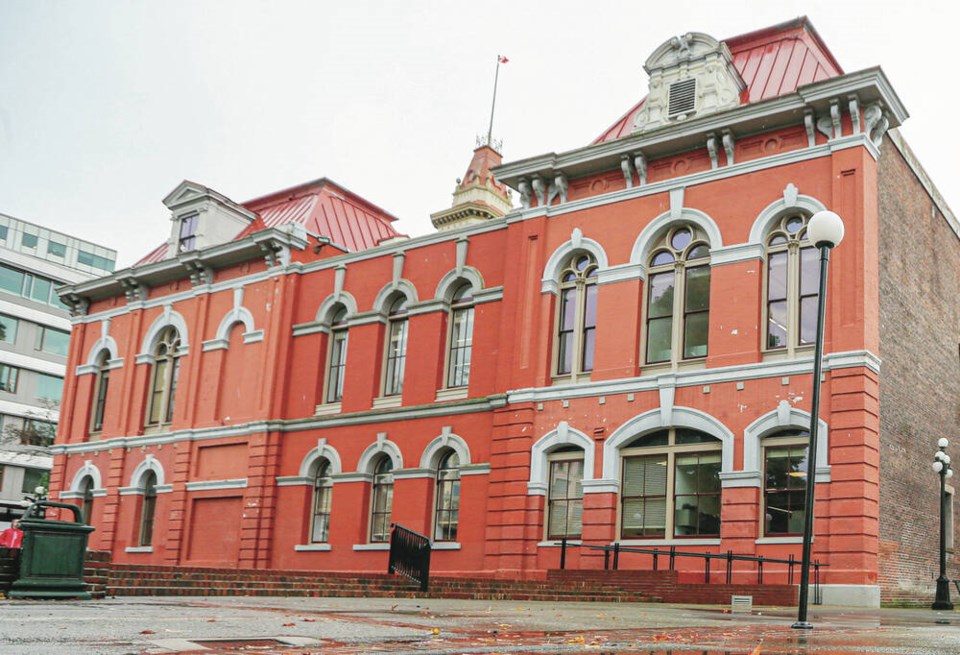A municipal watchdog group is calling for the City of Victoria to send a proposal for the creation of an annual grant to the Songhees and Esquimalt nations to a referendum.
The grant money would be drawn from the city’s “new assessed revenue,” which is property tax from new developments and additions to existing properties, and provided to the nations.
Mayor Lisa Helps said the grant is a way to move reconciliation beyond land acknowledgements and put it into action.
“We need to do more than just saying words if we’re serious about reconciliation,” she said.
The original proposal was to transfer 15 per cent of new assessed revenue annually on a cumulative basis to the two nations, but Helps said she’s looking at reducing the proposed amount to 10 per cent after community feedback.
She also plans to change the proposal to specify that the first $500,000 of new assessed revenue continues to be transferred to the city’s infrastructure reserves.
The nations would still receive a grant amount based on 10 per cent of the year’s total new assessed revenue, unless there’s not enough money left over after $500,000 goes to the reserve fund. In that case they would receive a reduced amount.
If any year brings in less than $500,000 in new assessed revenue, it would all go to the reserve fund and the nations would receive no grant.
The Grumpy Taxpayer$ of Greater Victoria say they’re concerned about how quickly the grant would grow because of the cumulative nature of the calculation. They argue that the idea must go to a referendum to gauge public support.
“It is a very significant measure from every perspective, so we think the public — the taxpayer — deserves the right to pass judgment,” said John Treleaven, the group’s chair.
Treleaven said the changes Helps is recommending to the initial proposal are important, but people still need an opportunity to weigh in.
“We think there needs to be broad public support for this,” he said.
Provincial rules dictating when a referendum is required say relatively few matters require one. They must take place generally when decisions “have the potential to fundamentally change the structure and governance of an area,” such as amalgamation of municipalities, fluoridation of a local-government water system and a reduction in the size of a municipal council.
If the grant is approved, council would not tell the nations how to spend the money, but might ask for an annual report on how the grant is used, as is standard practice with other grants provided by the city, she said.
Craig Candler is a cultural anthropologist and founder and CEO of Reciprocity Research Inc., a social enterprise working to facilitate payments from homeowners, business owners and renters to distribute to the First Nations whose land they live and work on.
Candler supports the proposed reconciliation grant, saying B.C. — and Victoria in particular — is “built in someone else’s living room. We have private land, we have public land — all of that land is also Indigenous land. We know that. And we know it hasn’t been dealt with in the past,” he said.
Candler doesn’t agree that a referendum is the right way to decide whether to move forward with the grant, because it would cost time and money and risk fracturing relationships.
There would be a portion of residents who are dead-set against the proposal and would be vocal about their opposition, he said, and “a bunch of that ugliness will be directed, in fact, at the Esquimalt and Songhees nations. We don’t want that. I don’t think anybody wants that.”
The reconciliation grant is one of nearly 50 items councillors are considering adding to the 2022 budget that would drive up spending if approved. The draft budget totals $361.8 million — $264.7 million in operating expenses and $97.1 million in capital projects — and proposes a 3.25 per cent property tax increase, which would result in an increase of $87 for an average household and $225 for a typical business, according to a city report.
Discussions continue this month and the budget is expected to be approved by April.
regan-elliott@timescolonist.com



